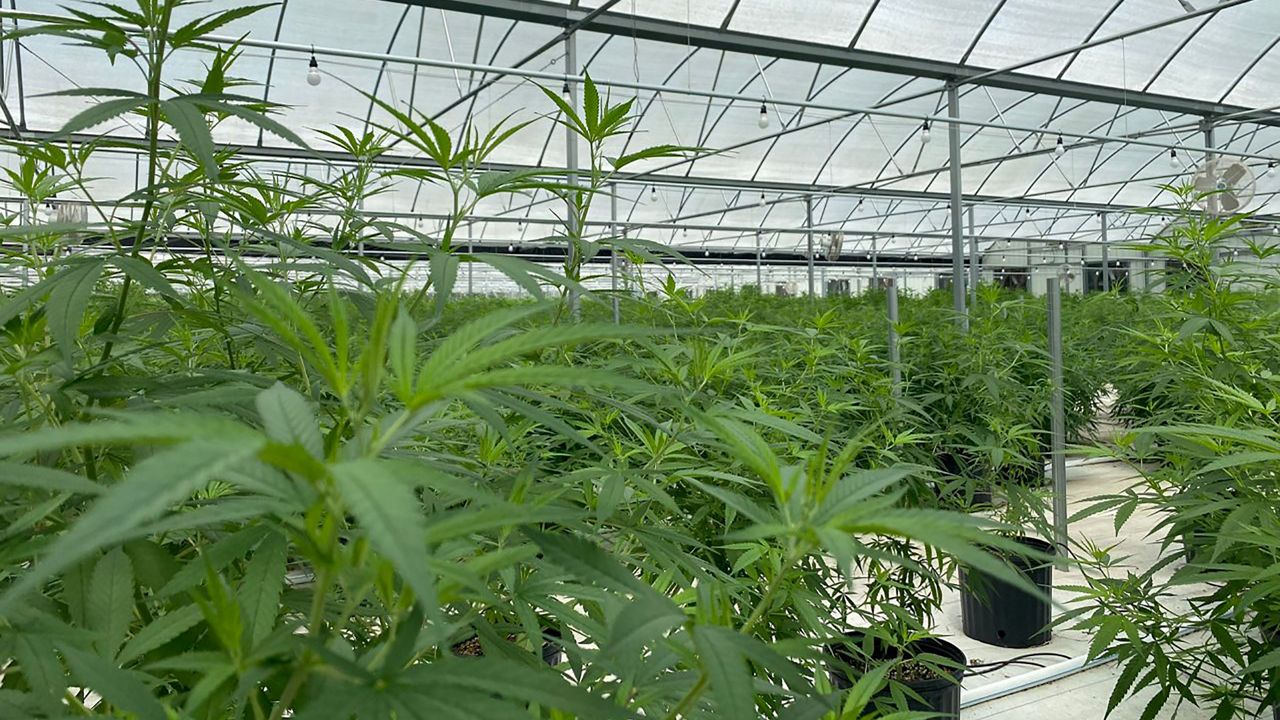STATEWIDE — When proponents wanted to expand hemp agriculture in Florida, it was touted as a new mega cash crop for the Sunshine State.
What You Need To Know
- A new study shows it is taking longer for hemp to grow into a mega cash crop
- Researchers found higher THC levels than preferred — more than .3% — in many crops
- That number is a threshold for distinguishing hemp from marijuana
- RELATED: Central Florida Farmers Start to Harvest the Hemp
But, a new study shows it is taking longer than anticipated to take root.
“The big so what is, 'How does this replace or contribute to cropping systems across the state?'” said Zack Brym, an agronomy assistant professor at the University of Florida's Institute of Food and Agricultural Sciences (UF/IFAS) and Hemp Pilot Project lead scientist. "Hemp has the potential to be a viable crop in Florida. There's still a lot of work to do to get there."
Brym said that while enthusiasm for the industry is palpable, UF/IFAS's two-year Hemp Pilot Project concluded with advice for farmers: proceed with caution.
“We’ve been able to identify a whole bunch of challenges, my list grows, from genetic, environmental and ecological," he said.
Brym explained that Florida’s heat and humidity are tough on crops. In addition, researchers found higher THC levels than preferred — more than .3% — in many crops.
That number is significant, as it serves as the threshold for distinguishing hemp from marijuana.
“We found in our trials many genetics available to us would readily exceed that threshold; a risk to farmers," he said.
But, perhaps one of the most significant challenges in Florida farmers' quest to monetize hemp is having viable infrastructure and a supply chain.
It is a hurdle some, like Treadwell Farms in Lake County, have already cleared.
According to Glen Treadwell, who co-owns the operation alongside his daughter Jammie, Treadwell Farms has trained 15 farmers to grow hemp responsibly, cleanly and sustainably.
Treadwell then buys the hemp back from the farmers to turn into products, like tinctures to bath bombs, to help consumers with inflammation.
“We knew this was a good product, we knew there was demand for it, and we knew something about growing it," Treadwell explained.
Right now, 735 businesses are permitted to grow hemp across the state; it is a crop farmers can use to diversify crops and even populate abandoned citrus fields.
In addition, experts, like Brym, said that hemp could one day help the environment and replace single-use plastics.
That is when the industry is better established.
“The realization that it’s going to take more to get this off the ground has set in," he added.
And while hemp has not made Treadwell millions yet, the lifelong farmer sees the promise.
“I see hope for people, hope for our farmers and hope for our state," he said. "One day for sure."



